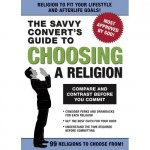Our theology reading group is working our way through Wendell Berry’s The Unsettling of America, a robust and challenging critique of consumer society and industrialized farming. In chapter 3, “The Ecological Crisis as a Crisis of Agriculture,” Berry insists on the critical importance of how land is used, and proposes “kindly use” and “humility” as the touchstones by which our agricultural practices should be measured. (Is it necessary to say that Berry, writing in 1977, finds modern agriculture lacking in both these regards?)
The use of land cannot be both general and kindly—just as the forms of good manners, generally applied (applied, that is, without consideration of differences), are experienced as indifference, bad manners. To treat every field, or every part of every field, with the same consideration is not farming but industry. Kindly use depends upon intimate knowledge, the most sensitive responsiveness and responsibility. As knowledge (hence, use) is generalized, essential values are destroyed. As the householder evolves into a consumer, the farm evolves into a factory—with results that are potentially calamitous for both.
Nolan, whose brother farms a 550-acre area in northwestern Iowa, developed the study questions for this session. They include the following information:
The fields of modern day farms are divided into relatively small grids … soils in the grids are tested for nutritional needs…with the use of GPS and other technologies manure and artificial nutrients are added to the soil in the grids as needed to avoid using too much or too little for peak production. Wet “sour” areas are tiled for drainage. Much hilly land is contoured or strip-farmed. “Rippers” are used, rather than moeboard plows, to prevent soil compaction from heavy machinery…and to reduce wind erosion. Some farmers are planting this year’s crops between last year’s rows to lessen wind and water erosion. Farmers are paid to plant thick, tall grasses as buffer zones along creeks and waterways. Some small or “marginal” plots of land are seeded and left untilled. When possible many farmers are moving away from the use of petroleum-based fertilizers (probably mostly due to high cost!) toward more use of manures produced by food animals grown in confinement units…etc., etc…you get the point!
So, Nolan asked us, “[D]o these types of behaviors meet Berry’s criteria for ‘intimate knowledge,’ ‘sensitive responsiveness,’ and ‘responsibility’ in land use?”
Somehow, one suspects that Berry would not be in agreement. Yet the juxtaposition of modern farming assisted by sophisticated technology with Berry’s injunction to kindly use somehow brought to mind Steve Jobs’ notion that a personal computer is “a bicycle for the mind.” In the same way that a bicycle multiplies human accomplishment through the creative application of simple machines, a personal computer multiplies human mental accomplishment by “leveraging” our ability to organize and adapt.
Jobs said this in 1981, four years after Berry published the first edition of The Unsettling of America. It seems highly unlikely that, even had Berry experienced personal computers, he would have grasped their transformative potential or believed them to be a force for good. Similarly, the earliest deployment of satellite navigation technology, which eventually became GPS technology, happened in 1979, after Berry’s book came out.
I wonder, though, whether the availability of cheap, powerful, ubiquitous information-processing technology combined with satellite navigation and software to manage the two offers the possibility for something like Berry’s “kindly use” of the land, but on a much larger scale than Berry can have imagined. If so, it would mean that large-scale, rationalized approaches to farming need not inevitably become exploitative, as Berry seems to assume. What Nolan describes as his brother’s approach to large-scale farming seems to recognize that exploitation is inevitably self-destructive, as Berry charges. So it takes an approach that is much more like nurture that can be seen at first blush.
Berry is surely right that an approach to agriculture that ignores the destructive effects of exploitation will lead in time to the ruin of the environment and the impossibility of human life on this planet. At the same time, small-scale farming of the sort that Berry seems to favor cannot feed the planet.
But perhaps a technology-mediated “kindly use”—a bicycle for the farm—where the nurture of the land is aided by the application of science and technology, offers hope for both preserving our planet and feeding our people.
 Stumbled onto this book while browsing in a paper store in San Francisco recently and just had to share. It appears to be a terrific send-up of consumerism in religion carried to an extreme. “Compare and contrast before you commit. 99 religions to choose from.” From the same publisher (
Stumbled onto this book while browsing in a paper store in San Francisco recently and just had to share. It appears to be a terrific send-up of consumerism in religion carried to an extreme. “Compare and contrast before you commit. 99 religions to choose from.” From the same publisher (